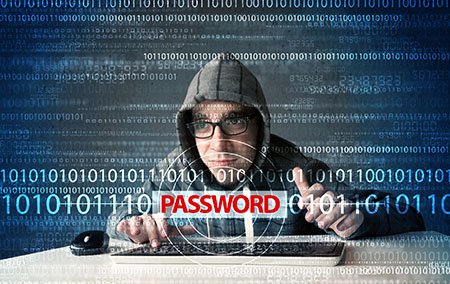
There is no denying the fact that technology has made our lives much easier in all aspects. What once seemed to be absurd and impossible has been made really simple through modern technology. Plastic money has replaced cash, huge bundles of data and large numbers of files do not take up all our office/house space now, and the world is literally on our finger tips. Due to its many advantages, technology has sneaked into every area and has almost taken over the world.
However, like everything else, technology has its own cons in addition to its pros. One major downside of this technological takeover is the increased threat of privacy infringement and theft of private or sensitive information.
The sensitive financial information that was once stored in your locker is now on your computer. Despite all the technological advancements, we have not yet found a way to eliminate the chances of theft and stealing. It is much easier for hackers to break all the passwords and sneak into your laptop or email account than it was for robbers to find a way into your locker room.
Also, remembering and protecting so many passwords in another huge task. What if you store them in your phone and you lose it? What if you mistakenly leave the notebook containing all your passwords in the cab? These and many other such concerns make us wonder about the ways in which we can keep all our passwords safe and protected.
Well, stop worrying anymore because we have done the work for you. The following are some of the best practices given by pros to keep all your passwords safe and protected:
- Keep the Passwords Lengthy, Weird and Unpredictable - Although this may sound too obvious, it is important enough to be stressed on every now and then. Experts state that passwords having all 3 of these characteristics, meaning they are long, strange and not too obvious, are the hardest to break. Using your date of birth, school’s name or the name of your favorite movie doesn’t work.
- Mask Your Passwords - Making them uncommon, using special characters randomly (in the centre of the password and not at the start or end).
- Do not Duplicate - Not duplicating your password (using the same password for multiple accounts) is the key to securing your accounts.
- Encryption Isn’t Only for Technology Geeks - Ever heard of data encryption? Sounds too technical, right? Actually, it’s not.
Various modern tools and apps have totally changed what once seemed to be only meant for technology geeks. Now, it is no more rocket science to encrypt and decrypt files, emails, and even the hard drive of your computer.
All we’re saying is -- if you are writing your passwords and/or other sensitive information in a text file, make sure you encrypt it. (Google “password-protect Word Documents” or “using WinZip to encrypt files”).
- Use Two-Step Verification for Your On-Line Accounts, where possible - There is a reason that big service providers, such as Gmail, Hotmail, Facebook, Banks (Online services), etc., offer two-step verification. This is to make sure that users are notified if someone tries to access their accounts. By enabling this feature, your accounts cannot be accessed by anyone unless they enter the code that is sent to your mobile phone.
An additional benefit of using this feature is that whenever someone attempts to access any one of your accounts, you will get to know. How? You will receive the text message with the code which grants you access. If you hadn’t previously requested it – you know there is a problem!